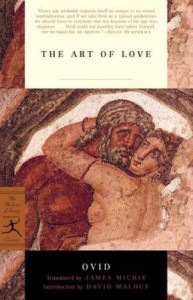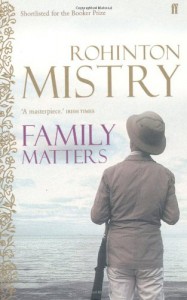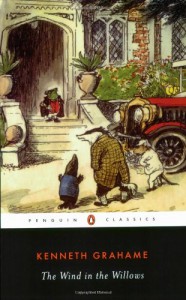
With emerald shades,Dance eternal cranes.In the pristine rains,A warm koicha shared.Upon poignant chests.Tranquil prayers kneltJust as Bolaño teases my psyche, Kawabata plays with my rhythmic senses. In his words I find songs of a wintry heart waiting for a prosperous spring. I cannot refrain myself from scribbling lost thoughts in the shadows of Kawabata’s characters. Speaking of shadows; what an enigmatic delusion? The more you walk into it the more it grows; a loyal companion who never departs your physicality no matter how much you want it to leave. And then somehow, on a rainy day you crave for the sun, once again to be able to walk with your humble silhouette. Kikuji lived in and among numerous shadows of his past and present. Like the serpentine birthmark on Chikako’s breast, Kikuji’s past was conspicuous as warts on a toad. The ugliness of the birthmark that marred Chikako’s luminous skin spewed venomous ghosts through the intoxicated brew. The novel opens with Chikako inviting Kikuji to meet a prospective bride in pretense of a tea ceremony. The purplish mark on Chikako’s breast was all Kikuji remembered about his father’s mistress. As if the mark was an effigy of his father’s betrayal, the anguish of his mother and yet somehow it made him desire its touch in a bizarre way. Yukiko Inamura , a girl with the thousand cranes patterned kerchief was chosen for Kikuji’s miai(matchmaking). Kawabata interlaces the complex emotions in simple characterizations; analogous to the meticulous procedures that of a tea ceremony. Sen no Rikyū is considered as a profound historical figure in the tradition of wabi-cha(the Japanese Way of Tea). In the early 1500s, Rikyū integrated the teachings of Zen philosophies with the simplicity of tea to achieve aesthetics with pristine lucidity. Based on the four Zen principles of Harmony, Respect, Purity and Tranquility; the tea ceremony is more of a spiritual experience than mere drinking of tea. The ceremony that commences with the cleaning of the tea utensils before the tea is whisked, is symbolic to achieving stillness of mind and heart, by eradicating the worldly filth and strives for simplicity. Kawabata however fills the beauty of the tea ceremony with repulsiveness of human complexities and rigid destinies; a befitting paradox to the traditional Japanese art of Tea. Regarding his novel, Kawabata once said, “It is a negative work, and expression of doubt about and warning against the vulgarity into which the tea ceremony has fallen." Unlike other tea masters, Mr. Mitani left a legacy of guilt and melancholic irregularities to his son (Kikuji). With the passing of tea utensils through generations, Kikuji not only inherited the embellished porcelains but also his father’s revolting past and his women. Kawabata uses various tools of the tea ceremony as pictures on a nostalgic wall of grotesque sentimentalities. When Chikako serves tea to Kikuji in his father’s favourite Oribe(a black bowl) for the first time, Kikuji snubs the wistfulness brought by the kitchen-ware."But what difference does it make that my father owned it for a little while? It’s four hundred years old, after all – its history goes back to Momoyama and Rikyū himself. Tea masters have looked after it and passed it down through the centuries. My father is of very little importance.’ So Kikuji tried to forget the associations the bowl called up.It had passed from Ota to his wife, from the wife to Kikuji’s father, from Kikuji’s father to Chikako; and the two men, Ota and Kikuji’s father, were dead, and here were the two women. There was something almost weird about the bowl’s career."The same outlook is displayed when Fumiko brings the Shino Jar over to the cottage."A jar that had been Mrs. Ota’s was now being used by Chikako. After Mrs Ota’s death, it had passed to her daughter, and from Fumiko it had come to Kikuji.It had had a strange career. But perhaps the strangeness was natural to tea vessels. In the three or four hundred years before it became the property of Mrs Ota, it had passed through the hands of people with what strange careers?"The ceramics that once were proud of their serene concoctions were now symbols of forlorn tragedies. Kawabata delineates the corruption of sanctimonious tea ceremony by whisking in human greed and viciousness. Resembling the serene tea that gets muddied by loosened clay particles., the essence of chaste spirituality vanishes into emotional turmoil ridden by jagged history of the human soul In this book, the tea ceremony upstages the mortals as it takes the centre stage of vanishing traditions and escalating materialistic vulgarity transforming into a laudable protagonist. Furthermore, when Fumiko brings the red and the black Raku bowls over to Kikuji’s cottage, the molded clay become symbols of an incomplete love. The love between Mrs. Ota and Mr. Mitani that was haunted by immoral ramifications; Mrs. Ota’s love for Kikuji as she could not detach herself from his father’s memories; Kikuji’s love for Fumiko that dwelled in sinister shadows of his bedding Mrs. Ota; Fumiko’s apprehensions in reciprocating the warmth burdened with her mothers sins and the malice of Mr. Mitani in Chikako’s sexless existence. In a peculiar way all of it appeared to juxtapose the ghosts raised from the antique bowls."Though they were ceremonial bowls, they did not seem out of place as ordinary teacups; but a displeasing picture flashed into Kikuji’s mind. Fumiko’s father had died and Kikuji’s father had lived on; and might not this pair of Raku bowls have served as teacups when Kikuji’s father came to see Fumiko’s mother? Had they not been used as ‘man-wife'...."With artistic perfection Kawabata paints the red and black Raku giving a heart to these lifeless objects. The crimson love blackened by shame. The dreaminess of a man’s love and a woman’s devotion perished in morbid fancies.Kawabata does not romanticize suicide. He explores death in depths of salvation for it being the definitive pardon to mortal transgressions. Mrs. Ota’s untimely death or rather suicide brought closure to several irregularities. Her guilt that lived in the Raku bowls churned venom in a sorrowful Shino. Even though one forgives the dead ; the viciousness of the past becomes sorrows of the present. An urge to spit out all the venom.“Death only cuts off understanding. No one can possibly forgive that”....."Guilt never goes away but sorrow does."Gravely haunted by her mother’s death; ”Maybe mother died from not being able to stand her own ugliness”; Fumiko could not bring herself to love Kikuji for she felt the burden of acquiring the touch that once belonged to her mother. Even the smashing of the Shino did not mitigate Fumiko’s grief of her mother’s ignominy.Conversely, the “death” of the Shino in some way freed Kikuji from the paralytic curse induced by Mrs. Ota’s bond to him. Now, he sensed freedom and for the first time saw Fumiko in a pristine cleanness detached from the all the repulsiveness that once followed her existence. Fumiko was then an enlightened soul achieving the primitivism of the tea ceremony.“He could think of no one with whom to compare her. She had become absolute, beyond comparison. She had become decision and fate."Leaving traces of the mono no aware concept([b:Beauty and Sadness|14029|Beauty and Sadness|Yasunari Kawabata|http://d.gr-assets.com/books/1327954071s/14029.jpg|1414440]), Kawabata puts forth the idea of 'perishability' being the essence of nature. The indigo morning glory that hung on the gourd in Kikuji’s cottage, in its short life span bestowed flavor in the morning tea fading in the watery oblivion.Chikako’s greed for the antique tea bowls and Kikuji’s guilt over Mrs.Ota’s suicide and his intriguing affinity to the lipstick stained Shino creates a nauseating sense of filth; contradicting the simplistic spirit of the tea ceremony that Kawabata speaks so fondly; gradually disappearing in human greed. The aesthetic transience of beauty that envelops the wabi-sabi concept of accepted transience and imperfection is vivid through the quixotic words of this text and the flawed existence of its people. “Does pain go away and leave no trace, then?’‘You sometimes even feel sentimental for it.” Personally, the picture of thousand cranes is synonymous with Sadako Sasaki, a book that I had read years ago. Sadako, a victim of the Hiroshima bombing, prepared thousand origami cranes as a prayer for her recovery from leukemia. Legend has it that Sadako could not finish the said number of paper cranes; however, her brother Masahiro Sadako asserts that she indeed completed the 1000 paper cranes and it was during her second origami cycle that her youthful life was cut short. In the Japanese culture the crane stand for longevity and good fortune. The tradition of folding 1000 cranes is done when someone has a wish for better health, peace and happiness. Sardonically, the kerchief of patterned crane that the Inamura girl held represented the tragedy of missed chances and missed chances of luck and hope that eluded Kikuji’s fated destiny. The ‘bird of happiness’ after all did not nest in Kikuji’s life .In his Nobel Prize speech Kawabata commented:-"A tea ceremony is a coming together in feeling, a meeting of good comrades in a good season. That spirit, that feeling for one's comrades in the snow, the moonlight, under the blossoms, is also basic to the tea ceremony. A tea ceremony is a coming together in feeling, a meeting of good comrades in a good season. I may say in passing, that to see my novel Thousand Cranes as an evocation of the formal and spiritual beauty of the tea ceremony is a misreading. It is a negative work, and expression of doubt about and warning against the vulgarity into which the tea ceremony has fallen.As the fragrant tea emits transitory life into the tinted ceramics, Kawabata brilliantly bring beauty in the dynamism of nothingness exposing the conundrum veiled within the peaceful periphery of mortality.
 Circa 1992. It was a regular school day on a lovely December morning(winters are warm not cold in Bombay).With just an hour left to mid-morning recess, there was a sudden flurry of anxious announcements calling certain students to report immediately with their belongings at the Principal’s office. After being little nosy about the happenings I go back to my daydreaming. Suddenly, I see my mother hurriedly demanding that I go and collect my younger sister from her classroom. As I walk through the school compound frantic parents rush in and out of the school premises with their children. As we walk towards the car I see my father tensed and horrified to some extent. He had just escaped death(which we knew later that evening. Four men had hurled bombs in front of him at a nearby housing development while my father was driving through traffic). A riot had broken in the streets nearby as we frantically rushed home, I could see shutters closing at the speed of light, people scattering, some flinging acid bulbs and destruction of harmless developments. That was the day the Hindu-Muslim riots let a demon loose for which innocents had to pay with their humble lives in the coming horrendous months. I still remember those days vividly for I have been a front row spectator to the bloodshed occurred in the name of religion ignited by few political rivals. I lived among trepidations that lasted for years to come by. Lost people I knew and religion once again became a crucial factor in our mundane lives. The citizens of Bombay (I resist from calling it Mumbai, always) bravely faced those murky days, which I witnessed closely with resilience and banishing all prejudices imposed by political cults. Over decades the city has seen its share of political violence and inter-religion hatred, but its people have always made it through with smiling faces.Thus, when an individual who summons his exploration of a nostalgic hometown proclaiming that he has seen enough murderers and questioned their virtues, it irks me.I am not denying factual comprehensions of this book, as it would be utterly preposterous to overlook the shame that Bombay once faced or has not being able to strike an equilibrium in honored survival, however I do question the validity of his sentiments to a place he calls “Maximum City” where he once unreservedly wandered as a kid. Mehta says he left the city in 1977 only to be back after 21years to find him in a state of utter shock. There is no falsehood, no dramatic sequences to define the underbelly of my home city, nevertheless I get annoyed each time I open the pages and read those words. Rarely a book touches me on a personal note, but these words dishearten me as they are negative of a place and its people who strive hard for a living. Fair enough, there are vast discrepancies in the standard of living. There are some who die homeless in scorching heat whereas others never travel without an air-conditioned comfort. There are some who demand beluga caviar on toast for tea –time and indulge in La Prairie Cellular serums while others barely make it through the day without a proper meal. It is extremely difficult to rationalize these disparities that hit you in the face in the most mysterious ways. But, these do not define all. Why wasn’t there a prose about people striving everyday braving obstacles with dignified audacity to make a better living. About individuals determined to make a dignified and prosperous future come what may. People amalgamating into one joyous mass rejoicing each cultural festival with the same magnanimous excitement banishing all ethnic prejudices. The chapters on “Bollywood” signify braggart purposes. It is a film industry for crying out loud; an entertainment business where almost all actors are purely performers and not artistic geniuses that venerates the true meaning of art. Nothing can be gained from it rather that a minority percentage of artistes that depart frothy amusement to make assiduous lives cheerful. Most art films (movies depicting social causes and instabilities) do not fare well with common psyche. This very attitude shows the annoyance of a mind resisting it to shun “moralistic virtues” performed by artistes that have been rehearsed to achieve precision. Is it disheartening? Not really. When it comes to choosing authenticity over illusionary realism, the latter is always preferred.One would refute my caustic words claiming that with my privileged lifestyle I must be the last person to comment on the imbalanced financial and educational status of this city. I have never lived without food, shelter or money. Then how would I know the depth of a suffering. One does not have to be poor to know what poverty is. One does not have to be fraudulent to know what corruption is. I was born in Bombay, schooled here and I presently live in this city all hale and hearty. Unlike the author, I have been away from Bombay for a span of 9 years, while I was studying in the US. But, that does not give me the right to condemn the city mechanics or garner negativity. As you cannot expect a child to stay a child forever, you cannot anticipate a burgeoning city to stay in its purest unscathed form. From what I observed, the author seems perplexed with his distinctiveness. He tried finding a sense of belonging in New York stressed through the binding stereotypes only to come back to the place of his origin and see it modified into a strange land that once again botched a sense of belonging.Bombay will always be my home come what may. I have traveled around many superior worldly cities, yet the imminent landing announcement at the Bombay airport somehow makes me warmly smile every freaking time. The city is heavily crowded, poverty and richness juxtaposes every road that spirals into politically corrupt governing display of unreliable loyalties and prone to religious debates. But, this does not define its landscapes, its populace. It is a city where dreams are built; life is raw imparting valuable teachings of resilient determination, where people smile even in the most tedious times, ethnicities are celebrated with joyfulness and life is seen at it nastiest and its finest. It is a place where I grew up and took long walks with my grandfather relishing every aspect of this marvelous city. Bombay is not a place full of murderers or politically agitated goons, it is haven of magnificent, soulful people who fight all odds and nurture a ravishing tomorrow. Now, this is what I would term as “Maximum City”.Lastly, one question that troubles me is why only those who bring together pessimistic opinions are the ones who have stayed away from the core of Bombay nudging stereotypes in a foreign land?Praj, why after such scathing opinion would you bestow a 3-star rating on this book? Is this you being diplomatic or commiserating the author’s hard slog? Ah, I get it. This book makes you defensive about your home city and makes you affectionate for something you disregarded that this book interleaves in you.
Circa 1992. It was a regular school day on a lovely December morning(winters are warm not cold in Bombay).With just an hour left to mid-morning recess, there was a sudden flurry of anxious announcements calling certain students to report immediately with their belongings at the Principal’s office. After being little nosy about the happenings I go back to my daydreaming. Suddenly, I see my mother hurriedly demanding that I go and collect my younger sister from her classroom. As I walk through the school compound frantic parents rush in and out of the school premises with their children. As we walk towards the car I see my father tensed and horrified to some extent. He had just escaped death(which we knew later that evening. Four men had hurled bombs in front of him at a nearby housing development while my father was driving through traffic). A riot had broken in the streets nearby as we frantically rushed home, I could see shutters closing at the speed of light, people scattering, some flinging acid bulbs and destruction of harmless developments. That was the day the Hindu-Muslim riots let a demon loose for which innocents had to pay with their humble lives in the coming horrendous months. I still remember those days vividly for I have been a front row spectator to the bloodshed occurred in the name of religion ignited by few political rivals. I lived among trepidations that lasted for years to come by. Lost people I knew and religion once again became a crucial factor in our mundane lives. The citizens of Bombay (I resist from calling it Mumbai, always) bravely faced those murky days, which I witnessed closely with resilience and banishing all prejudices imposed by political cults. Over decades the city has seen its share of political violence and inter-religion hatred, but its people have always made it through with smiling faces.Thus, when an individual who summons his exploration of a nostalgic hometown proclaiming that he has seen enough murderers and questioned their virtues, it irks me.I am not denying factual comprehensions of this book, as it would be utterly preposterous to overlook the shame that Bombay once faced or has not being able to strike an equilibrium in honored survival, however I do question the validity of his sentiments to a place he calls “Maximum City” where he once unreservedly wandered as a kid. Mehta says he left the city in 1977 only to be back after 21years to find him in a state of utter shock. There is no falsehood, no dramatic sequences to define the underbelly of my home city, nevertheless I get annoyed each time I open the pages and read those words. Rarely a book touches me on a personal note, but these words dishearten me as they are negative of a place and its people who strive hard for a living. Fair enough, there are vast discrepancies in the standard of living. There are some who die homeless in scorching heat whereas others never travel without an air-conditioned comfort. There are some who demand beluga caviar on toast for tea –time and indulge in La Prairie Cellular serums while others barely make it through the day without a proper meal. It is extremely difficult to rationalize these disparities that hit you in the face in the most mysterious ways. But, these do not define all. Why wasn’t there a prose about people striving everyday braving obstacles with dignified audacity to make a better living. About individuals determined to make a dignified and prosperous future come what may. People amalgamating into one joyous mass rejoicing each cultural festival with the same magnanimous excitement banishing all ethnic prejudices. The chapters on “Bollywood” signify braggart purposes. It is a film industry for crying out loud; an entertainment business where almost all actors are purely performers and not artistic geniuses that venerates the true meaning of art. Nothing can be gained from it rather that a minority percentage of artistes that depart frothy amusement to make assiduous lives cheerful. Most art films (movies depicting social causes and instabilities) do not fare well with common psyche. This very attitude shows the annoyance of a mind resisting it to shun “moralistic virtues” performed by artistes that have been rehearsed to achieve precision. Is it disheartening? Not really. When it comes to choosing authenticity over illusionary realism, the latter is always preferred.One would refute my caustic words claiming that with my privileged lifestyle I must be the last person to comment on the imbalanced financial and educational status of this city. I have never lived without food, shelter or money. Then how would I know the depth of a suffering. One does not have to be poor to know what poverty is. One does not have to be fraudulent to know what corruption is. I was born in Bombay, schooled here and I presently live in this city all hale and hearty. Unlike the author, I have been away from Bombay for a span of 9 years, while I was studying in the US. But, that does not give me the right to condemn the city mechanics or garner negativity. As you cannot expect a child to stay a child forever, you cannot anticipate a burgeoning city to stay in its purest unscathed form. From what I observed, the author seems perplexed with his distinctiveness. He tried finding a sense of belonging in New York stressed through the binding stereotypes only to come back to the place of his origin and see it modified into a strange land that once again botched a sense of belonging.Bombay will always be my home come what may. I have traveled around many superior worldly cities, yet the imminent landing announcement at the Bombay airport somehow makes me warmly smile every freaking time. The city is heavily crowded, poverty and richness juxtaposes every road that spirals into politically corrupt governing display of unreliable loyalties and prone to religious debates. But, this does not define its landscapes, its populace. It is a city where dreams are built; life is raw imparting valuable teachings of resilient determination, where people smile even in the most tedious times, ethnicities are celebrated with joyfulness and life is seen at it nastiest and its finest. It is a place where I grew up and took long walks with my grandfather relishing every aspect of this marvelous city. Bombay is not a place full of murderers or politically agitated goons, it is haven of magnificent, soulful people who fight all odds and nurture a ravishing tomorrow. Now, this is what I would term as “Maximum City”.Lastly, one question that troubles me is why only those who bring together pessimistic opinions are the ones who have stayed away from the core of Bombay nudging stereotypes in a foreign land?Praj, why after such scathing opinion would you bestow a 3-star rating on this book? Is this you being diplomatic or commiserating the author’s hard slog? Ah, I get it. This book makes you defensive about your home city and makes you affectionate for something you disregarded that this book interleaves in you.















 1
1













